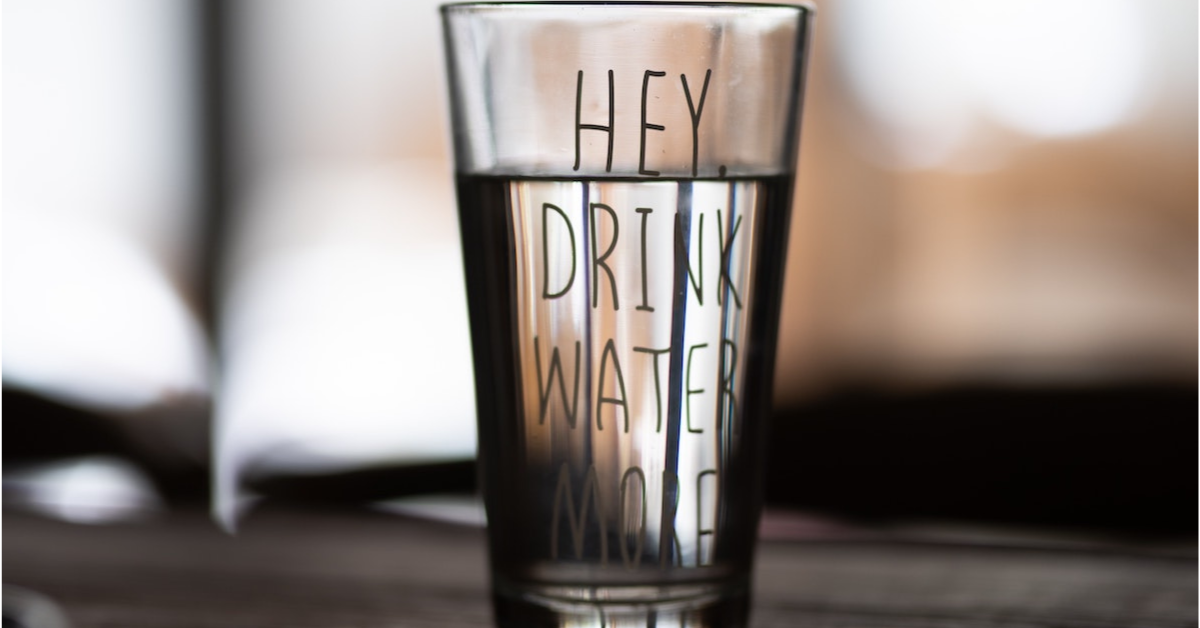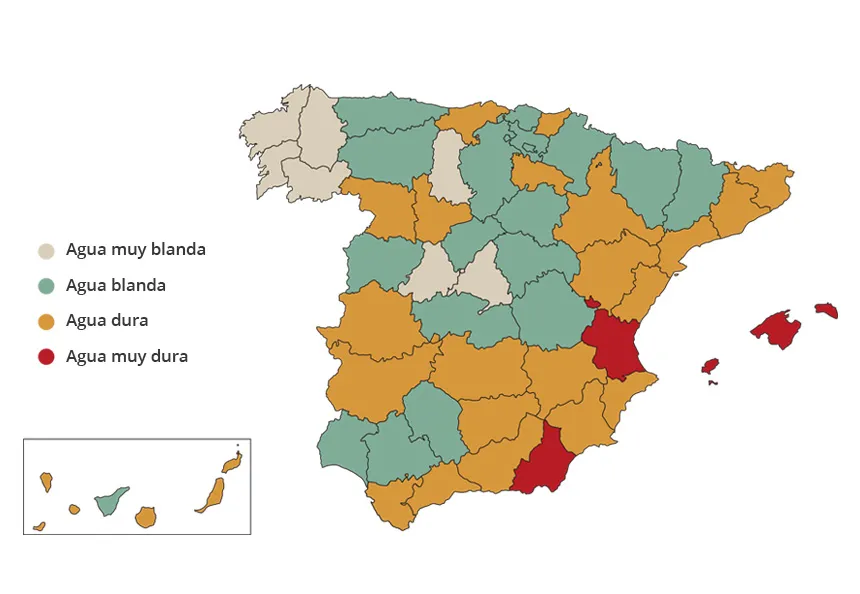
For years I had been trying to figure out the best type of water to drink...
It can be confusing and frustrating when different types of water, like bottled, spring, mineral, reverse osmosis, alkaline, distilled and activated carbon-filtered, have both pros and cons.
So which is best for your health? How do you choose?
It's important to know...
After all, you drink 2 litres of it daily (hopefully!) and you're using it in your cooking, your cups of tea, giving it to your partner, kids, friends and animals.
I for one thought that spring water was best.
Since underground water filtering is a natural process where water passes through materials like rock, clay, soil, and sediments before coming out on the Earth's surface, to me it appeared as the best choice for drinking water.
But we actually have to be very careful when getting water from a spring...
A friend and I travelled 45 minutes by car to get water from a spring at Sierra Bernia, a mountain range in the province of Alicante.
After drinking this water, our lower backs hurt for days as our kidneys were protesting. The water was heavily laden with calcium and it was too much for our bodies to handle.
It took us a few days for the discomfort in our backs to completely disappear after ceasing to drink the mountain spring water.
I also used to travel a long way to reach Font de Gel in Vall De Laguar. It's a spring where hikers, bikers, and local residents gather to collect water.
But, even with this mineral-rich water, a thick layer of limescale formed in the kettle within a couple of days, indicating that the water is too hard.
The amount of calcium in your water can vary depending on where you live, and a lot of areas in Spain have very hard water.
The map of Spain below* shows areas of hardness. The grey colour is the softest and the red colour is the hardest water.
As you can see, the provinces of Valencia, Almeria and Baleares Islands have the highest levels of hard water.

Tap water has inorganic minerals, harmful microbes, bacteria, viruses, chlorine and other nasty chemicals...
So, you definitely don't want to be drinking that type of water because it can cause health complications.
You can read more about it here: Filtering Your Water To Optimize Your Health
I first discovered the idea of drinking distilled water when I read books by Dr John Christopher, a well-known herbal medicine doctor.
What put me off initially is that I had heard on multiple occasions that distilled water leaches minerals out of the body.
What I didn't know at the time was what type of minerals they were - which I reveal later to you...
A significant debate exists on the ideal type of water for many MANY years.
But then I came across Dr. Allen Banik's book, "The Choice is Clear" (1) about distilled water.
Something clicked and it all made sense...
According to Dr Allen Banik's book, consuming water with inorganic minerals, which is present in most types of water, can lead to various health issues such as arthritis, hardening of the arteries, kidney stones, gallstones, cataracts, glaucoma, hearing loss, diabetes, obesity, and emphysema.
Dr Allen Banik further explains that as rain falls on the ground, its purpose is to collect inorganic minerals and transport them to plants, allowing for assimilation.
Instead, plants must undergo a transformation process to make them suitable for our consumption.
In a nutshell, we get our optimal minerals from food, not from water.
Consuming hard water that contains high levels of inorganic minerals like magnesium, calcium, iron, and copper can lead to the deposition of these minerals in our joints, potentially causing arthritis.
Limescale is very hard to remove and only a water distiller will effectively do it.
You will not remove limescale by boiling it, or by filtering it using a Brita filter or any activated charcoal filter.
The purest form of water is distilled. That's why it's used in hospitals for flushing out surgical wounds and as a solvent for medications and intravenous methods.
Recent studies indicate that cholesterol plays a role in promoting the production and accumulation of amyloid beta (Abeta) in the brain. This buildup of Abeta is a significant characteristic associated with Alzheimer's disease.
The discovery (2) was a reduction of the accumulation of Abeta in rabbits who were given distilled water instead of tap water.
This is HUGE because it reveals that a simple lifestyle change of the quality of water we drink, benefits anyone with Alzheimer's disease.
The consumption of high water hardness with high water fluoride can result in the destruction of renal tubules, causing Chronic Kidney Disease (CKD).
A study in 2020 (3) discovered that introducing distilled water can greatly improve the condition and can lead to reversal if spotted in the early stages.
Therefore, distilled water is a powerful preventative method for kidney disease.
It makes you wonder, especially when both dogs and cats are prone to kidney disease.
Where's their main water supply coming from? Typically tap or filtered water, right?
If the results of the above-mentioned study show that distilled water can reverse the early stages of kidney disease or at the very least improve kidney function...
Then wouldn't it make sense to give it to your pets too?
If we didn't live in the age of pollution, then the ideal water to drink is rainwater, which is the result of nature's natural distillery.
Fortunately, you can distil pure water in the comfort of your own home.
So, how does the process work?
When boiled water turns into vapour, it leaves behind inorganic minerals, bacteria, viruses, heavy metals, and other contaminants.
This steam is then cooled and condensation occurs releasing pure water into an external container.
You will be shocked at the impurities and intoxicating stench of the remaining contaminants after a single distillation.
And you will see for yourself how important it is to properly filter your water...
Or else you will be consuming some or all of that which you see in it.
I have been drinking distilled water produced by the Megahome 316 bought from EcoVidaSolar...
And I can say with absolute integrity that it's the best and purest water I have ever tasted.
The company Ecovidasolar are extremely helpful and they answered any questions that I had.
Here are some pros and cons of the distiller:
After distilling the water, it's preferable to store it in a glass or steel container.
Personally, I use the Big Berkey filter, which I used before purchasing the Megahome.
This way, the water is kept in a stainless steel container with a convenient tap for easily filling glasses.
Big Berkey's carbon filters last for 10 years, which means that I don't need to buy replacement filters for the Megahome water distiller.
To enhance the water's mineral content and electrolytes, I often add a squeeze of fresh lemon juice or a slice of cucumber.
This is a cheaper water distiller from Megahome. The material is a bit different and you will not be able to distill seawater:
Some people have asked me some specs of the distiller, so here they are!
Capacity: 4 liters
Power consumption: 580W
Distiller dimensions: Maximum diameter: 23.5cm Height: 36 cm
Distiller net weight: 3.4kg
Distiller / PP bottle/accessories total gross weight: 5.2kg
Distiller / glass bottle / accessories total gross weight: 6kg
Voltages:
230V 50/60Hz
240V 50/60Hz
I would like to end this article with a quote from Dr. Clifford C. Denisson:
" Some health specialists believe we experience hardening of the arteries, arthritis, kidney stones, gall stones, vision problems (glaucoma and cataracts) loss of hearing, diabetes, obesity, emphysema and other ailments in greater intensities and more frequently when we consume polluted or contaminated water.
There’s no absolute medical proof that drinking distilled water will cure any of the infirmities that humans suffer,
But there are thousands of case histories of people who have enjoyed success in alleviating or overcoming these health problems when they began drinking distilled water exclusively.
Does it not make sense, therefore, to consume only pure water produced by a good quality distiller right in your own home?”
* Extra Notes
Tuandco kindly granted me permission to use the image showing the regions in Spain with hard water.
References